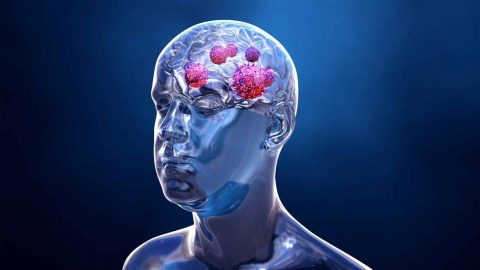Home > Blogs > Neurosurgery > The Need for Awareness about Brain Tumor
The Need for Awareness about Brain Tumor

‘Listen to your heart, not your brain’, ‘Let your heart talk to your brains’, ‘Do you have brains at all ?’ , are some of the regular quotes associated with brains in our day-to-day life. We know the importance of brains, but in literal terms, we have always listened to our heart, not our brains. We rarely talk about taking care of our brain.
Brain tumors or Central Nervous System (CNS) tumors are amongst the topics that are hardly spoken. Everyone is aware about heart ailments, now lung ailments because of Covid , but hardly anyone talks about taking care of our brain. It is arguably one of the most important organs as decides and coordinated actions of the body. Brain tumour is a life-threatening condition and with the incidence of brain tumors in India on a steady rise in the last decade or so, there is a need to spread awareness amongst people.
Several people are diagnosed with brain tumors irrespective of their age, and most of them are diagnosed late making it difficult to deal with it effectively. One of the main reasons why they are not diagnosed early is due to the lack of knowledge about the symptoms of brain tumor. The challenge is that symptoms of this condition are hardly distinguishable from some other ailments.
Headaches, blurred vision, vomiting, clumsiness, confusion, weakness, seizures and memory loss are some of the indicators of a brain tumor.
There are two types of brain tumours
- Benign tumours which do not spread in brain and do not recur once treated or once removed.eg. Meningioma, Pituitary adenoma etc
- Malignant Tumours or cancers which grow at the cost of normal brain and has the tendency to recur inspite of removal. eg. Glioma If one or more symptoms are seen in a patient, the doctor may suggest detailed neurological examination and if needed, investigations in the form of MRI of brain. CT scan and MRI are supposed to diagnose presence of a brain tumour but type of the tumour or its grade in case of malignant brain tumour, can be verified only through biopsy or histopathological examination.
Have queries or concern ?
There is a third kind of tumour seen in brain which spread from other organs
in the body. those are called as metastatic tumors. Metastatic tumors are the
one which are invariably cancerous.
The treatment of brain tumours depends on timely accurate diagnosis. Considering the type, size, location of the tumor and the health of the patient, brain tumors in most cases can be treated with different ways.
The treatment methods include surgery to remove the tumor as much as possible without causing any harm to the brain, surgery coupled with other treatments like chemotherapy and radiation in cases of malignant tumors or cancers. Benign tumors do not recur if removed completely. After surgery, Physical therapy, occupational therapy, and speech therapy, depending upon the need, are the mainstay of the treatment in order to rehabilitate the patient.
As the 8th of June is annually celebrated as World Brain Tumor Day, plenty of awareness programs and drives are conducted globally. The day focuses on eradicating all the misinformation and misconceptions about the condition, and instead sheds light on medical facts and progresses in the field. So we conclude with a quote “Time is brain, Time lost is brain lost! “
About Author
Dr. Manish Sabnis
Neurosurgeon
Contact: +91 88888 22222
Email – [email protected]
Patient Feedback
Great doctors, Good facilities, caring and helping staff. I recommend this hospital for day care services.
![]()
![]()
Sangram Shinde
All doctors r very good. There treatments is best. Other staff also good. The service of nurses is great...Hospital is always clean.
![]()
![]()
Vaishali Aitawade
All services provide by hospital are nice and on time. Doctors are polite and co-operative with patient.
![]()
![]()
Ankita Jagtap
All services provided by hospital is good. Hygiene maintained well.Even at night good care provided.
![]()
![]()



